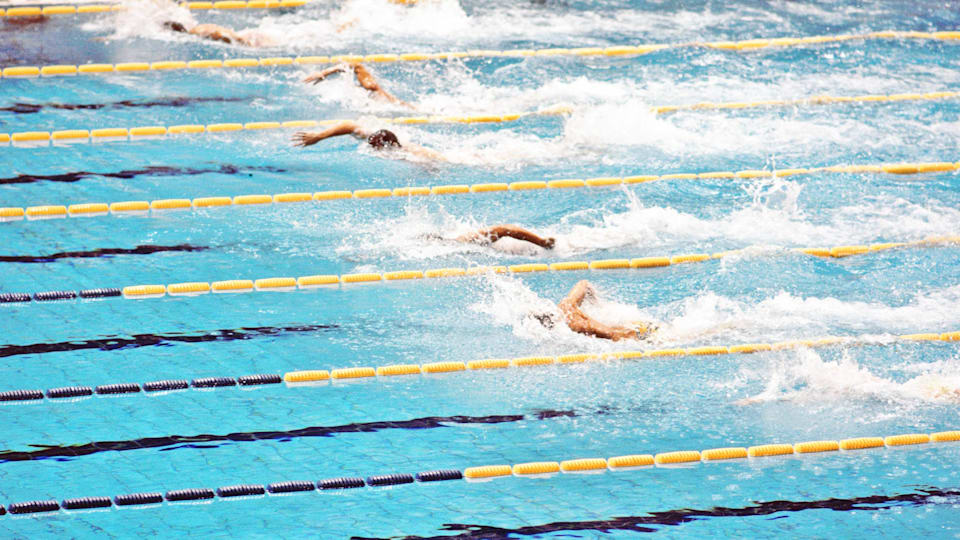Gary Hall Sr, the three-time Olympian whose roommate put him in the shade
Gary Hall Senior won medals at three Olympic Games and held numerous world records, but on one late-August day in 1972, it was Hall’s friend, clubmate and fellow competitor, Mark Spitz, who set the sporting world alight, as Hall explains…

As an elite athlete you work hard at being the best. The best in your school, your town, your state, your country. For the truly outstanding, the best in your continent or even the world.
Butterfly specialist Gary Hall Senior was a world record-holder in five events, went to three Olympic Games and won medals at all of them. But for a spell he was not even the best swimmer in his own apartment.
“Mark Spitz and I roomed together in college in Indiana, and again at the Olympic Games in Munich,” Hall says, recalling sharing his day-to-day life with one of the greatest-ever Olympians.
“Not in Mexico City [in 1968] but in Munich when he won his seven gold medals, I was his roommate.”
At those Munich Games in 1972, Spitz claimed a then-record seven golds in the pool, all of them in world-record time. His mark stood for 36 years until it was surpassed by his compatriot Michael Phelps’ eight golds at the Beijing Games in 2008.
The first final in Spitz’s hunt for his magnificent seven came on 28 August in the 200m butterfly. Four years earlier in Mexico City, the US swimmer had finished the final over the same distance in last place.
Hall and Spitz not only shared breakfast that day in Munich, they also lined up alongside each other on the pool deck.
Spitz was placed in lane four. On the starting block next to him in lane three was Hall. Like his Indiana Hoosiers swimming clubmate, Hall was competing in his second Games, having picked up a silver medal in the 400m individual medley in Mexico City.
A fraction more than two minutes later, Spitz was celebrating the first world-leading mark and gold medal of his historic haul, having sliced almost 13 seconds from his time of four years previously. Hall overhauled fellow US swimmer Robin Backhaus over the last 25m to finish second.
Hall – whose son Gary Hall Junior has also won medals in the pool at three Olympic Games, making them the only father and son to have achieved that feat – went on to earn a bronze at the Montreal 1976 Games before hanging up his swimming cap and moving into a career as an ophthalmic surgeon.
He now runs Florida’s Race Club training camps for swimmers alongside Gary Junior. Having witnessed Spitz’s remarkable performances at close quarters, there are few people better placed to recognise the qualities of a great champion.
The 69-year-old believes that at the delayed Olympic Games Tokyo 2020, current US swimming sensation Caeleb Dressel could surpass the achievements of Spitz and his successor Phelps by winning nine golds at the same Games.
“It’s an interesting time in swimming,” Hall says. “In the US there are a lot of talented young swimmers coming through. It should be the Caeleb Dressel show in Tokyo, and I hope it will be. He’s a great guy and a tremendous talent.
“Because they’ve added extra events [the 800m freestyle for men, the 4x100m mixed medley relay, and the 1500m freestyle for women] he could potentially break the gold medal record of Phelps. It wouldn’t happen were it not for adding additional relays, but it’s a chance.”
The postponement of Tokyo 2020 brought back memories for Hall of when politics, rather than a global health crisis, threatened the Games.
He is confident that this year’s unavoidable delay is likely to benefit some of the world’s up-and-coming stars.
“I swam in three Olympic Games from the age of 16 to 25 – in 1968, 1972 and 1976 – before I ended my career,” he says.
“Having lived through the 1980 boycott [of the Moscow Olympic Games], that was a lifelong devastation for some athletes. Some of those guys have never gotten over that: one opportunity or chance to win a medal, and it was taken away from them. But this is different. Everyone has taken it well and understands the reasons. The elite athletes I’ve spoken to are OK with it being postponed. A year is a long time, but four years is an eternity for an athlete. A year they can handle. Some of the older people are hanging on, and a lot of really talented young swimmers are coming up. For those guys, the extra year is probably good.”
The coronavirus pandemic that led to Tokyo’s date change has forced individuals and organisations to rethink how they interact.
As part of the IOC’s partnership with Airbnb, Olympic and Paralympic athletes are offering Online Experiences to earn additional income as they share their passion and stories with people around the world. One such athlete is Hall’s son, Gary Hall Junior, who won 10 Olympic medals – including five golds – competing with type-one diabetes.
“Gary Junior is particularly adept at being a role model for kids with diabetes in any sport, not just swimming,” the senior Hall says. “He plays that role very well; he’s kind of the poster child for ‘you can live with diabetes and do whatever you want.’”
Hall Junior, like his father before him, certainly achieved his sporting dreams in the pool. He may have finished behind the legendary Mark Spitz in 1972 – almost everybody did – but Gary Hall Senior has never lost his love for swimming.
“I never left the sport,” he says. “I finished med school and I was running mostly in those days, then I started doing triathlons. Then we built a pool in Arizona and I started running the swimming programme. I started coaching in 2005 after I retired from my practice, and I’ve been coaching ever since.”
